 Deception
Deception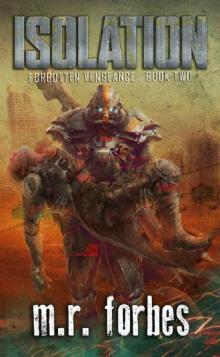 Isolation (Forgotten Vengeance Book 2)
Isolation (Forgotten Vengeance Book 2)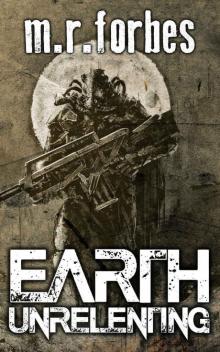 Earth Unrelenting (Forgotten Earth Book 2)
Earth Unrelenting (Forgotten Earth Book 2)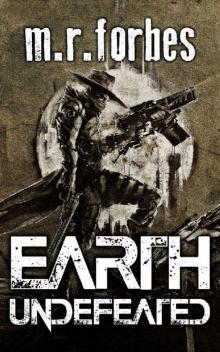 Earth Undefeated (Forgotten Earth Book 4)
Earth Undefeated (Forgotten Earth Book 4)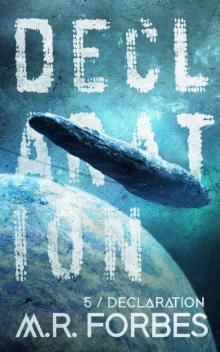 Declaration (Forgotten Colony Book 5)
Declaration (Forgotten Colony Book 5)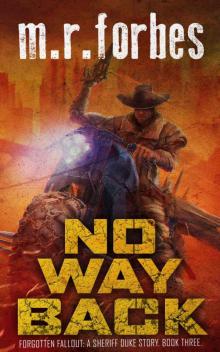 No Way Back: A Sheriff Duke Story (Forgotten Fallout Book 3)
No Way Back: A Sheriff Duke Story (Forgotten Fallout Book 3) Single Shot (Justice of the Covenant Book 3)
Single Shot (Justice of the Covenant Book 3)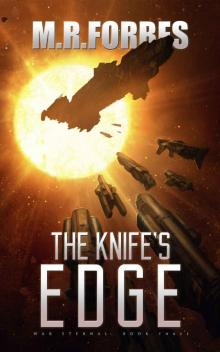 The Knife's Edge (War Eternal Book 3)
The Knife's Edge (War Eternal Book 3) Starship Eternal (War Eternal Book 1)
Starship Eternal (War Eternal Book 1)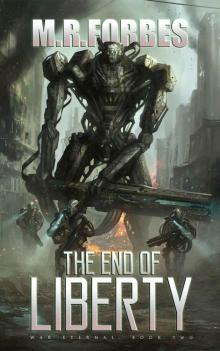 The End of Liberty (War Eternal Book 2)
The End of Liberty (War Eternal Book 2)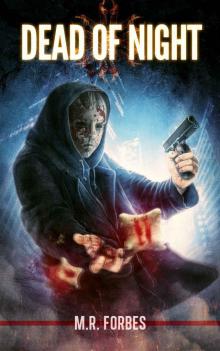 Dead of Night (Ghosts & Magic #1)
Dead of Night (Ghosts & Magic #1)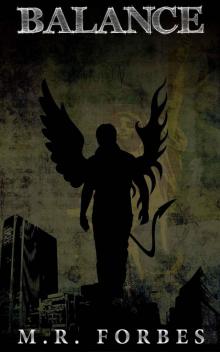 Balance (The Divine, Book One)
Balance (The Divine, Book One)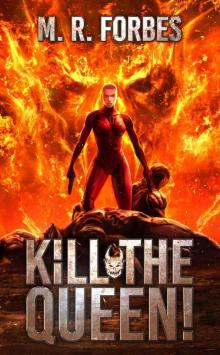 Kill the Queen! (Chaos of the Covenant Book 4)
Kill the Queen! (Chaos of the Covenant Book 4) Evolution (The Divine Series Book 5)
Evolution (The Divine Series Book 5)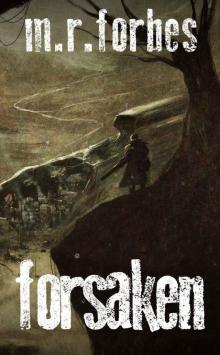 Forsaken (The Forgotten Book 2)
Forsaken (The Forgotten Book 2)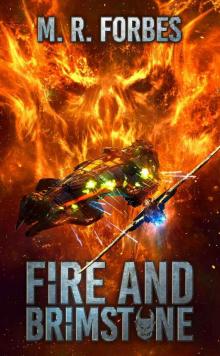 Fire and Brimstone (Chaos of the Covenant Book 2)
Fire and Brimstone (Chaos of the Covenant Book 2) Tides of War (Rebellion Book 3)
Tides of War (Rebellion Book 3) Extinction (The Divine Book 7)
Extinction (The Divine Book 7)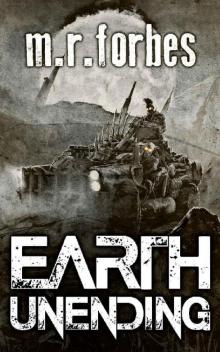 Earth Unending (Forgotten Earth Book 3)
Earth Unending (Forgotten Earth Book 3) Point of Origin (War Eternal Book 4)
Point of Origin (War Eternal Book 4)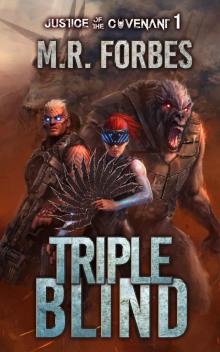 Triple Blind (Justice of the Covenant Book 1)
Triple Blind (Justice of the Covenant Book 1) Queen of Demons (Chaos of the Covenant Book 7)
Queen of Demons (Chaos of the Covenant Book 7)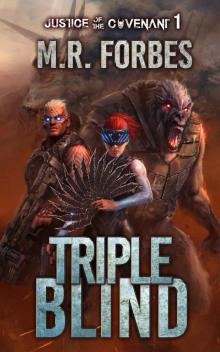 Triple Blind
Triple Blind Dead End (Ghosts & Magic Book 4)
Dead End (Ghosts & Magic Book 4) Damned If You Don't (Chaos of the Covenant Book 5)
Damned If You Don't (Chaos of the Covenant Book 5)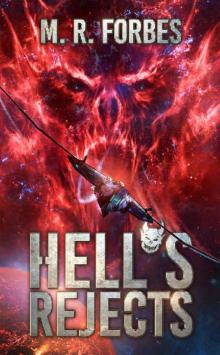 Hell's Rejects (Chaos of the Covenant Book 1)
Hell's Rejects (Chaos of the Covenant Book 1)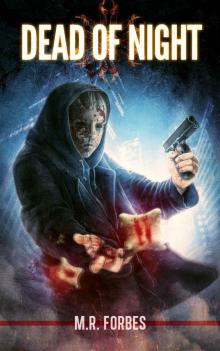 Dead of Night (Ghosts & Magic) (Volume 1)
Dead of Night (Ghosts & Magic) (Volume 1)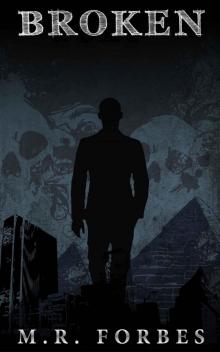 Broken (The Divine, Book Three)
Broken (The Divine, Book Three) His Ancient Heart
His Ancient Heart Man of War (Rebellion Book 1)
Man of War (Rebellion Book 1)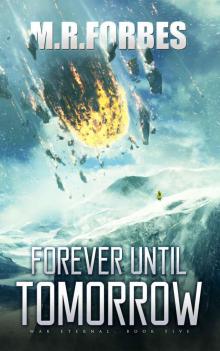 Forever Until Tomorrow (War Eternal Book 5)
Forever Until Tomorrow (War Eternal Book 5) His Final Secret
His Final Secret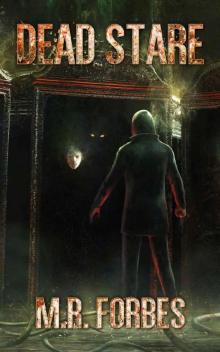 Dead Stare (Ghosts & Magic Book 3)
Dead Stare (Ghosts & Magic Book 3) His Cure For Magic (Book 2)
His Cure For Magic (Book 2)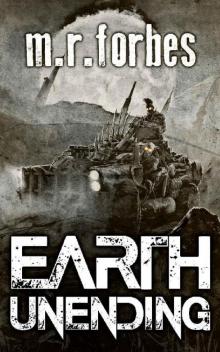 Earth Unending
Earth Unending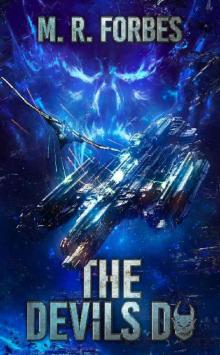 The Devils Do (Chaos of the Covenant Book 3)
The Devils Do (Chaos of the Covenant Book 3) The Edge of Infinity (War Eternal Book 7)
The Edge of Infinity (War Eternal Book 7)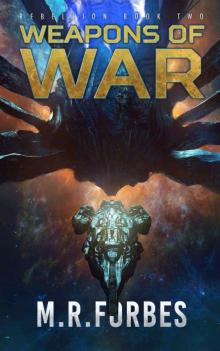 Weapons of War
Weapons of War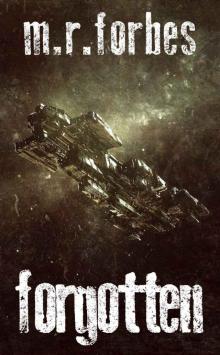 Forgotten (The Forgotten Book 1)
Forgotten (The Forgotten Book 1)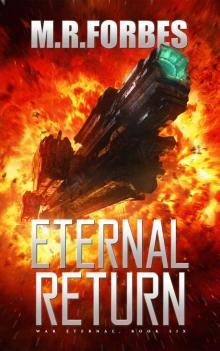 Eternal Return (War Eternal Book 6)
Eternal Return (War Eternal Book 6)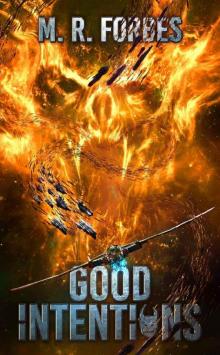 Good Intentions (Chaos of the Covenant Book 6)
Good Intentions (Chaos of the Covenant Book 6)